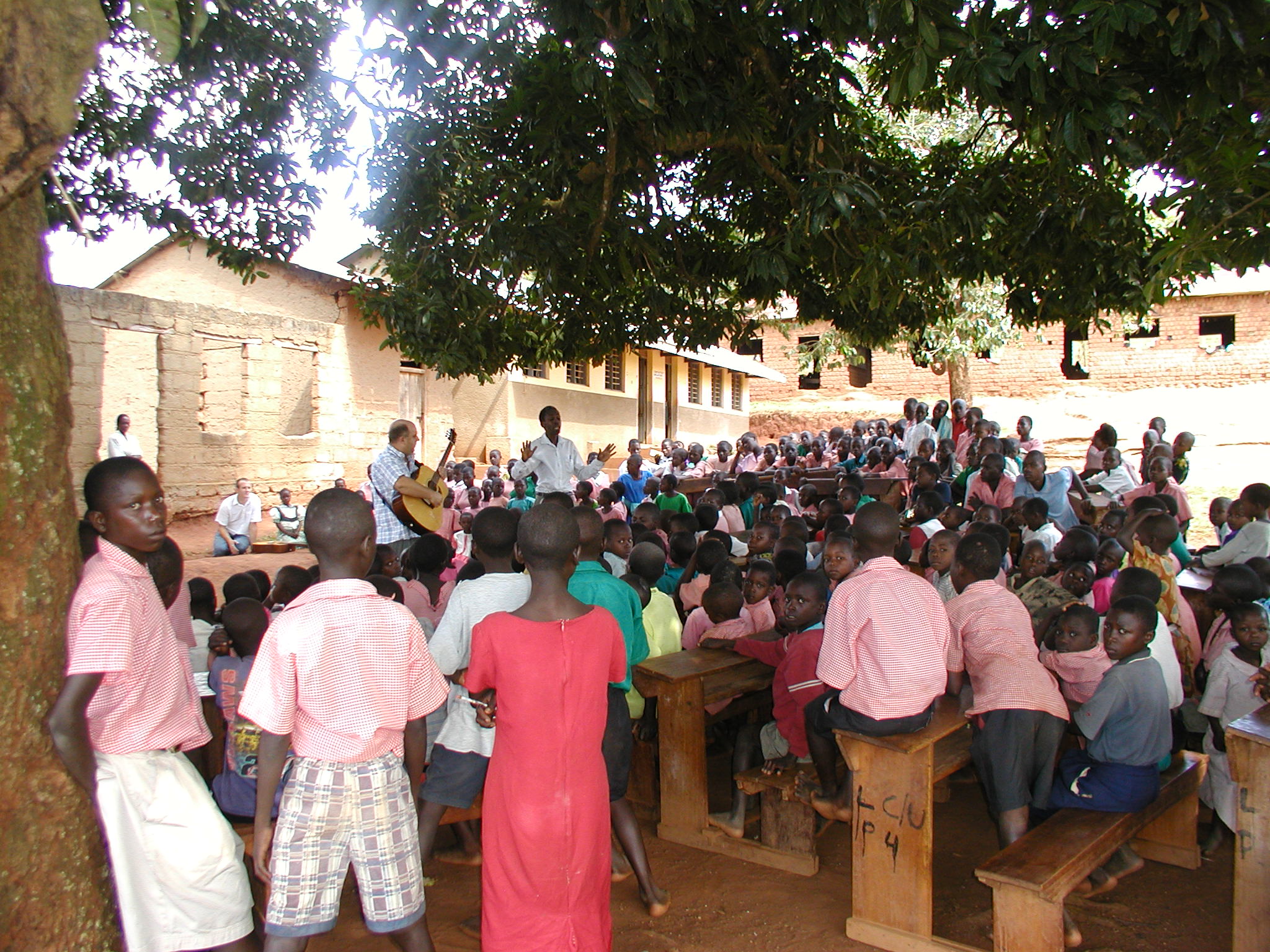
He went from playing music in bar bands to leading a worship team in church. And now David Mander travels the developing world helping bring cultural music back to evolving churches.
"I am the Worship Pastor which means I try to follow the duties of the earliest worship leaders, the Levites," says Mander, who leads worship at a church near Orlando, Florida. "Our typical Sunday worship team consists of acoustic guitar, keyboard, bass guitar, drums, mandolin, a couple trumpets, and about five or six singers."
"Overseas, we have a program called Music Missions," he explains. "There are only about 40 pieces of written music before 400 AD. The reason is because nobody had a way to notate the music. There were many songs, including the 150 psalms of the Bible, but who knows what the music sounded like? We have written records of the words, but not the music."
The same issue still exists in many developing nations today. There are "entire regions of musicians with no education to notate their music. Our goal is to help musicians preserve the songs they write and help them share music among their tribes and communities."

"I was so excited on my first trip to Uganda to experience true African music," says Mander. But to his dismay, many of the churches he visited actually tried to emulate "western" songs in English without their traditional instruments. "When they did their indigenous music, it was natural and vibrant," he goes on. "But when they tried to imitate our music style, it was rehearsed and not very authentic."
Mander explains that "It turns out many of the first missionaries from England told the Africans that drums were tribal instruments not to be used in church." So, the Africans "want to use western instruments because they feel their cultural instruments are not 'holy.'" In an effort to reverse the problem Mander and his team "study the Bible with the local teams to see where worship comes from and begin to introduce their culture into the church services. It is a great feeling to see people open up to the sounds and styles they are familiar with."
Re-education is just the beginning. Mander's Music Missions group hopes for their work to be sustained in the communities themselves so they also teach music notation. "We have developed a simple notation system to get musicians writing music down. It also includes ear training and sight singing. They need to be able to recognize tones in order to properly transcribe music. This process takes years of training and many return trips. The long-term goal here is to set up music schools in areas that have no formal training available."
Since 2005 Mander and his team have been on a dozen trips to Uganda, Rwanda, Nepal and India through Music Missions. "I have learned that worship is so much more about what we give to God and not nearly as much of what we get from worship. I have been to these places where there is no electricity, no running water, no food for the next meal, no fancy instruments, and yet we gather to sing. It is a humbling experience."
Photo courtesy Music Missions.
The views expressed do not necessarily reflect the opinion of Creative Visions Foundation. Personal opinion of the author only.
Erin Levin is sponsored by Creative Visions Foundation, a publicly supported 501 (c)(3), which supports Creative activists who use the power of media and the arts to affect positive change in the world.